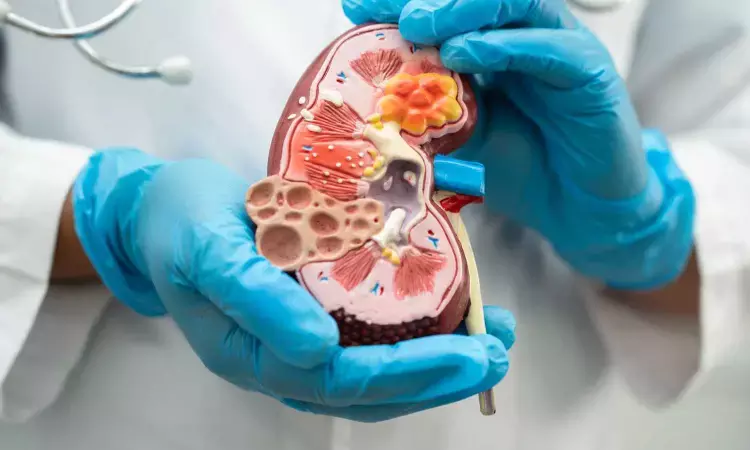- Home
- Medical news & Guidelines
- Anesthesiology
- Cardiology and CTVS
- Critical Care
- Dentistry
- Dermatology
- Diabetes and Endocrinology
- ENT
- Gastroenterology
- Medicine
- Nephrology
- Neurology
- Obstretics-Gynaecology
- Oncology
- Ophthalmology
- Orthopaedics
- Pediatrics-Neonatology
- Psychiatry
- Pulmonology
- Radiology
- Surgery
- Urology
- Laboratory Medicine
- Diet
- Nursing
- Paramedical
- Physiotherapy
- Health news
- Fact Check
- Bone Health Fact Check
- Brain Health Fact Check
- Cancer Related Fact Check
- Child Care Fact Check
- Dental and oral health fact check
- Diabetes and metabolic health fact check
- Diet and Nutrition Fact Check
- Eye and ENT Care Fact Check
- Fitness fact check
- Gut health fact check
- Heart health fact check
- Kidney health fact check
- Medical education fact check
- Men's health fact check
- Respiratory fact check
- Skin and hair care fact check
- Vaccine and Immunization fact check
- Women's health fact check
- AYUSH
- State News
- Andaman and Nicobar Islands
- Andhra Pradesh
- Arunachal Pradesh
- Assam
- Bihar
- Chandigarh
- Chattisgarh
- Dadra and Nagar Haveli
- Daman and Diu
- Delhi
- Goa
- Gujarat
- Haryana
- Himachal Pradesh
- Jammu & Kashmir
- Jharkhand
- Karnataka
- Kerala
- Ladakh
- Lakshadweep
- Madhya Pradesh
- Maharashtra
- Manipur
- Meghalaya
- Mizoram
- Nagaland
- Odisha
- Puducherry
- Punjab
- Rajasthan
- Sikkim
- Tamil Nadu
- Telangana
- Tripura
- Uttar Pradesh
- Uttrakhand
- West Bengal
- Medical Education
- Industry
Study finds hypothyroidism closely associated with chronic kidney disease

Illegal Kidney Transplant
A recent study published in Renal Failure uncovered a substantial association between hypothyroidism and chronic kidney disease (CKD), highlighting the prevalence of urine protein in patients with both conditions. The investigation wanted to unravel the mechanisms linking thyroid hormones and urine proteins, providing critical insights into the complex interplay between hypothyroidism and CKD.
The study conducted from November 2016 to August 2018, included 99 Japanese CKD patients with proteinuria. Major parameters assessed here were thyroid function (serum free T3, free T4, and thyroid-stimulating hormone), kidney function (estimated glomerular filtration rate), thyroid antibodies, and albumin. The research also looked into a comprehensive urine examination, examining levels of total T3, total T4, TSH, Alb, preAlb, thyroid-binding globulin, and overall protein.
The participants were of 60 years in average, with a slight male predominance (50.5%). Notably, around 70% of the patients displayed thyroid dysfunction, with 51.5% experiencing overt or subclinical hypothyroidism, irrespective of antibody status. Also, 21.2% of patients were diagnosed with nephrotic syndrome with a significant association between hypothyroidism and this renal complication. The study found higher urinary levels of thyroid hormones in patients with nephrotic syndrome, suggesting a more severe form of hypothyroidism.
These underscore that urinary loss of thyroid hormones may be a crucial factor influencing hypothyroidism independently of autoimmune factors. This established a link between hypothyroidism and nephrotic syndrome emphasizes the need for a comprehensive understanding of thyroid-kidney interactions in clinical management.
The outcomes deepens our understanding of the intricate relationship between hypothyroidism and chronic kidney disease and also opens avenues for targeted interventions. As we look further into the complexities of these interconnected health issues, this study marks a significant stride forward in advancing personalized treatment strategies for patients grappling with both hypothyroidism and chronic kidney disease.
Source:
Yuasa, R., Muramatsu, M., Saito, A., Osuka, H., Morita, T., Hamasaki, Y., & Sakai, K. (2023). Urinary excretion of thyroid hormone in CKD patients: a proof-of-concept of nephrogenic hypothyroidism. Renal Failure, 45(2). https://doi.org/10.1080/0886022x.2023.2293224
Neuroscience Masters graduate
Jacinthlyn Sylvia, a Neuroscience Master's graduate from Chennai has worked extensively in deciphering the neurobiology of cognition and motor control in aging. She also has spread-out exposure to Neurosurgery from her Bachelor’s. She is currently involved in active Neuro-Oncology research. She is an upcoming neuroscientist with a fiery passion for writing. Her news cover at Medical Dialogues feature recent discoveries and updates from the healthcare and biomedical research fields. She can be reached at editorial@medicaldialogues.in
Dr Kamal Kant Kohli-MBBS, DTCD- a chest specialist with more than 30 years of practice and a flair for writing clinical articles, Dr Kamal Kant Kohli joined Medical Dialogues as a Chief Editor of Medical News. Besides writing articles, as an editor, he proofreads and verifies all the medical content published on Medical Dialogues including those coming from journals, studies,medical conferences,guidelines etc. Email: drkohli@medicaldialogues.in. Contact no. 011-43720751


